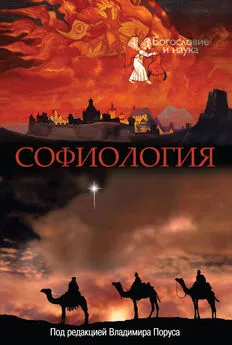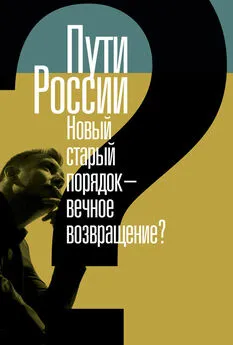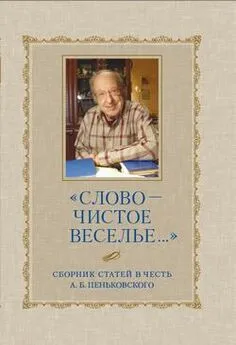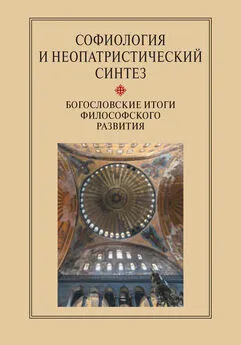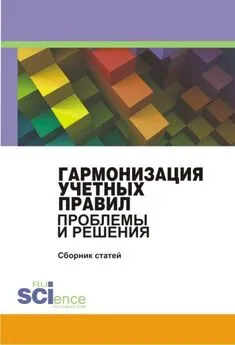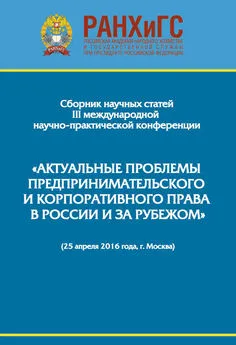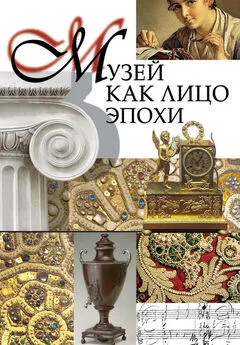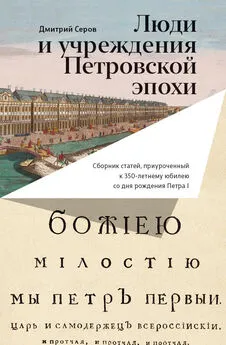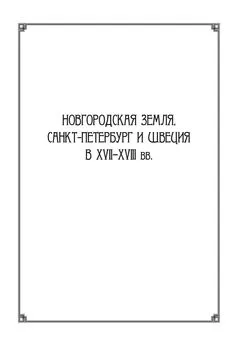Сборник статей - Софиология
- Название:Софиология
- Автор:
- Жанр:
- Издательство:Литагент «ББИ»bb9e3255-c253-11e4-a494-0025905a0812
- Год:2010
- Город:Москва
- ISBN:978-5-89647-221-6
- Рейтинг:
- Избранное:Добавить в избранное
-
Отзывы:
-
Ваша оценка:
Сборник статей - Софиология краткое содержание
Русская софиология конца XIX – начала XX вв. – самобытное и примечательное явление мировой культуры. Вокруг него продолжаются споры, острота которых свидетельствует о непреходящей актуальности поднятых русскими софиологами проблем, важнейшие из которых – способность христианской цивилизации ответить на вызовы времени, необходимость единения человечества перед лицом нарастающих глобальных кризисов, обновление веры, поиски новой рациональности как культурной ценности, разумных оснований диалога между западным и восточным христианством, между христианством и другими мировыми и национальными религиями, между различными культурами.
Настоящий сборник составлен из докладов, представленных на международной конференции «Русская софиология в европейской культуре» (Звенигород, 1–5 октября 2008 г.), организованной Библейско-богословским институтом св. ап. Андрея и Институтом восточных церквей (Регенсбург) при поддержке Католического комитета по культурному сотрудничеству (Рим, Италия).
Софиология - читать онлайн бесплатно ознакомительный отрывок
Интервал:
Закладка:
The third paragraph addresses the tasks of Bulgakov′s sophiology, Bulgakov developed Solov’ëv′s sophiology as a Christian sociology, in continuous reference to the contemporary secular sociology in Germany, and in particular with the sociology of Max Weber. Sophiology, according to Bulgakov, is not secular, but Christian sociology and it is an essential part of bogoslovle or theology. In the concluding part, the agreement or disagreement of the contemporary official social conception of the Russian Orthodox Church [509]with both Tolstoi′s social teaching and the sophiological views of Solov’ëv and Bulgakov is evaluated. The Osnovy do not mention Sophia or the names of the Russian sophiologists [510]and in some respects seem to side more with Tolstoi′s conception of the Christian attitude to the world as world denial, but in other and more important respects seem to express positions compatible with sophiology
′
The social question was raised because of the increase of human need and suffering in the lowest social classes, but it enhanced also the recognition of the differentiation of polity or state and society or b rgerllche Gesellschaft (civic or civil society). [511]The social question in fact was already the articulation of a relatively autonomous or self-conscious social sphere that could oppose itself to the state sphere,
A similar differentiation at the same time is apparent in the development of political economy from Staatswissenschaft, the science of – and on behalf of – the state, into Soziologie as an autonomous social science, This development took place during the lifetime of Max Weber, who was a champion for the theoretical independence of sociology from political science. Weber developed the concept of Wertfreiheit in science – or the freedom from other than scientific values in science – to ascertain this independence. This was not only Wertfreiheit of science from politics, but also from the dominance of rules, methods and ends of other life spheres, e.g. of religion, law, art and education, in the sphere of science. The Wertfreiheit of sociology according to Weber guaranteed the objectivity of the results of sociological research. [512]In fact, the Wertfreiheit of science is a logical consequence of Weber′s conception of history as an increasing rationalization of and differentiation into various life spheres that have their own Eigengesetzlichkeit or autonomy
The social question not only provoked the recognition of the factual differentiation of political and civil society, and the analogous differentiation of political and social science, but it also produced new articulations of the ′good life′. Since Socrates, Plato and Aristotle, the good life had been the central question of political philosophy, as it was the most important task of the polity as the Greek polis. In Aristotle′s analysis of the telos (end) of various political organizations, from oikos (or house community) to village to polis (city-state), the last and biggest entity had the task to provide for the good life of the population of the polis. The actions of the state or polis only had legitimacy because of its telos to provide for the good life. [513]
In traditional societies, religion answered the question of the good life, Weber demonstrated in his Zwischenbetrachtung the possible tensions between the political and the religious life spheres, that proceed from the fact that both are essentially engaged in ′giving meaning′. [514]In the 19 thcentury, politicians and autocratic rulers of the nation-states had secured the exclusive right to answer the question of the good life for its population and territory, and to install the rules and use the force necessary to direct society to this end. It was exactly this exclusive right of the polity to determine the telos of society that raising the social question challenged.
Because of his scientific principle of the autonomy or Eigengesetzlichkeit of every life sphere, Max Weber did not challenge the political sphere in his sociology He restricted sociology to the description of ′the social′ in terms of social actions and associations, and consciously kept all normative questions about the good society or the good social actions or associations out of sociology. Sociology should not prescribe any ideal of the good life of society, as it would transgress its competence in doing so. Science cannot decide between good and evil. [515]Apart from this, according to Weber, social actions do not always have the intended result: sociology cannot predict the future, but can only describe ideal-typical rational possibilities.
Sophiology did not recognize these self-imposed limitations of Weber′s sociology Not only the ′is,′ but also the ′ought′ belonged to its sphere. [516]In other words, not only the description of the actual state of society as it is – in the fallen state of humankind and society – is the task of sophiology, but also the description of society as it ought to be – as the Kingdom of God on earth. One important task of sophiology is the interpretation of the world from the telos of society – or from the intentions of God for humanity in material history
For all possible – political, societal or religious – perspectives on the ′good life′, one dominant problem was the problem of cohesion. What was the cement of polity or society, or what was the ultimate motive for any social group action? What was the force that kept the state undivided, or that was lying at the basis of society as a whole, or of every individual social organization? The perspective that formulated it colored the answers to this question: liberals answered with the notions of self-interest and positive law; Christians of all denominations with the notions of Divine love and Divine law, and communists would point to the natural law of solidarity within an economic class or social group.
Weber differentiated even the cement of society: social actions of individuals can be coordinated into group action from different motivations.
Individuals are motivated either out of sentiment or emotion, habit or tradition, convictions and beliefs, or rational calculation of interests. The latter two categories Weber considered rational and named goal-rational and value-rational motivations. The first two categories of habit and emotion according to Weber are irrational and more or less unconscious. Emotions and habit are not capable of building society, but only community. [517]According to Weber, in modern society the dominant types of social group action are value-rational or goal-rational actions that give rise to societyformation, not to community-formation.
Vladimir Solov’ëv and Sergei Bulgakov developed an Orthodox Christian social philosophy, or a Christian sociology that they named sophiology or the study of Sophia, the Wisdom of God. In essence, they opposed the rationalistic and individualistic or abstract view on society as an association of self-interest, or of self-chosen values, that Weber′s sociology developed. They also opposed the Christian duty of love for God and neighbor – or carltas/agap – that Lev Tolstoi developed, and that Weber used as an Ideal type to describe the essence of the Christian attitude to life. Finally, they opposed Weber′s acknowledgement that science cannot decide between good and evil with the notion of Divine wisdom (or Sophia) that can provide this knowledge to humankind.
2. a. Love-of-other or love-of-self as the essence of Christian social love: Solov’ëv versus Tolstoi
In Smysl′ llubvl, his famous philosophical-theological treatise on the meaning and essence of love, Solov’ëv reacted to the conception of love as duty, that he saw expressed in Lev Tolstoi′s Krecerova Sonata (1889) and Posleslovle k Krecerovol Sonate (1890). [518]In Smysl′ llubvl, Solov’ëv departed from the meaning of human sexual love or polovala llubov′, whereas Tolstoi was primarily concerned with the sinfulness of carnal love or plotskalallubov′. Solov’ëv′s essay started with the meaning of human love for biological and historical humanity, and in the end found its meaning in Divine-humanity or Bogochelovechestvo. Its smysl′ – that has the double sense of ′meaning′ and essential ′nature′ that reveals itself – is Sophla, the Wisdom of God. Solov’ëv did not mention Sophla in this essay, but referred to her as vechnala Zhenstvennost′ – the eternal Feminine – that he compared to Plato′s heavenly and earthly Aphrodite (SL, chapter 4.VII, p. 63).
Sophia, or the eternal Feminine, makes all human forms of love – including human polovala llubov′ or erotic love – meaningful. According to Solov′ ёч human erotic love is the highest bloom of human individuality. (SL, 2.I, p. 28) The meaning of human love is the justification and salvation of human individuality or personhood through the sacrifice of egoism (SL, 2.III, p. 32), or the transcendence of the self. Erotic love is the means to transcend the self and to become a more complete individual that can take part in the transcendent All-unity without losing its particularity. The individual cannot reach salvation individually, but only together with others in sobornost′, Tolstoi′s vision of salvation was a mystical union of the individual with an absolute God. In order to reach this salvation, the individual Christian had to live a worldly life of abstention, of rigid asceticism in every respect, of vegetarianism, of celibacy (even in marriage), of extreme pacifism, and of disciplined and preferably agrarian daily work. The individual Christian should not love himself and serve only himself, which is the essence of egoism, but should ′love God and neighbor′ that is the core of Christian altruism and self-sacrifice, according to Tolstoi. The ecclesiastical structure of the Church was not necessary to reach this salvation, nor so-called Christian marriage. Tolstoi′s explicit rejection of the sacrament of marriage in his Kreutzersonata shocked Russian and European society most. [519]
Tolstoi′s Christian love according to Solov′ ёv however is not anti-egoist, but ultimately egoist, as it is only interested in the salvation of the individual self, Tolstoi′s ascetic egoism – that reveals itself as anti-naturalist negation of every instinctive and bodily human need or pleasure – according to Solov’ëv is self-hatred and self-destruction that can have no place in true love. (SL, p. 34) Tolstoi′s salvation consisted in the loss of human individuality that is absorbed into the Divine Absolute. According to Solov’ëv, Tolstoi′s way to salvation was a continuous violence to human nature that contradicted God′s nature as love. For Solov’ëv the erotic love between a man and a woman is the fulfillment of their human nature. Only after the transcendence of the one-sidedness of human nature – or of the necessity of being engendered – humankind is ready to unite with God and be part of All-unity.
This salvation or union with God and All-Unity does not disturb the essential distinction between God and humankind, just as the union of a male and a female does not disturb the individuality and particularity of each. Love does not destroy the individuality or better the person-hood of the human individual, but it makes the human surpass him or herself. Solov’ëv′s teaching on salvation through love is a staged climb toward the perfection of human spiritual, moral and physical nature into Bogochelovechestvo (or the true communio of humankind and God in Divine Humanity) through the Grace of God,
Читать дальшеИнтервал:
Закладка:
